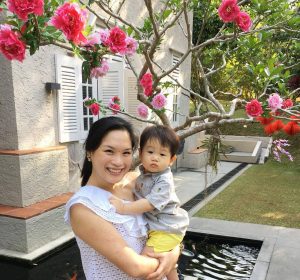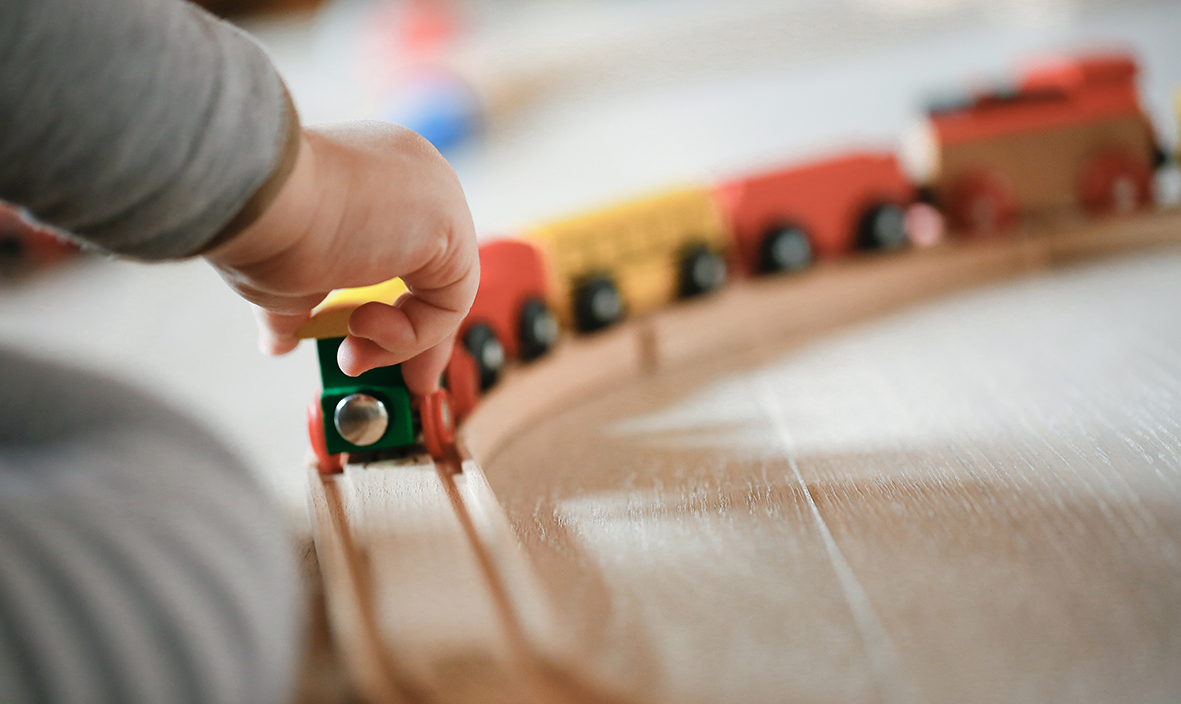As a parent and someone who spends a great deal of time at work, advising other parents on how to introduce limits and rules to their children, I sometimes find myself questioning if I might be stifling my child’s creativity. Being Montessori-trained, creativity is not often on the priority list of characteristics the philosophy aims to build. Sure, developing my son’s confidence and independence is incredibly important to me, but perhaps in a world where we are increasingly being told what to do, yet forced to think creatively for answers, it’s time we pay more attention to different ways of looking at things. The way I see it, Montessori purists might come after me with a sword, but surely I could find a space for my child to dabble within the limits of this highly respected philosophy.
Whenever I conduct my parenting workshops, one of the topics we often get into conversation over involves the idea of freedom within limits. The idea is for parents to establish a suitable area where everything within is entirely appropriate for the child. Then parents are to let their child work freely within that space (of course, within safety constraints too), picking activities that interest them without having much interference from the parent. The philosophy also subscribes to a less is more mentality, so within that prepared environment, it is hardly cluttered with toys and materials to work with. Instead a few selected activities are prepared to suit the child’s needs and interests. I try to set up my son’s room to adhere to these core ideals but the niggling feeling that I need to provide more – more space, more toys, more playdates – is always there.
It’s a struggle but I’m slowly seeing some desirable results. Just the other day, I noticed how perfectly pleased he was when he found out that he could fit himself into the box where we normally keep his toys. On another occasion, he tipped a cardboard box over (he had some unopened toys from Christmas) and proceeded to practice climbing up and down, beaming with pride as he succeeded. This afternoon, I was doing some stretches in the living room and he decided to use the various postures I was in as a railway for his toy car. And it truly dawned on me that whenever he wasn’t in the presence of all his toys, he was far more focussed, calm and joyful. It seems as though the less he had, the more fun he found in whatever he did have, exploring the same old toys in different ways, or simply just deciding that he would like to lie down and stare at the ceiling for awhile.
So here, I would like to make my case in defence of limits and rules, and generally, having less (and also offer some practical advice, should you wish to try this out too!)
- Limits offer security for exploration
The funny thing about limits is that the boundaries actually provides the child with a sense of security. They know what falls within desirable behaviour and what falls outside of those lines and the consequences that follow. This means that they are free to do whatever they want inside those lines and don’t have to constantly second guess. Parents should also follow through by truly giving them the freedom to do what they want to within the set limits, and to also be consistent in sticking to consequences when the child decides not to stay within those limits. For children under the age of 6, physical limits work – for example, their room or a designated play area. If you’re intending to try this with older children, limits can also be in the form of a timeframe or a choice between a few tasks.
- Creative limitation
This whole idea of limiting accessibility to resources to drive creativity isn’t new but I thought I’d bring it up because it is really so effective. Many parents worry that their children will be bored. You’ll be amazed to find the number of concerned parents out there worried that they aren’t mentally stimulating their child and are constantly on the look out for ways to engage them. The truth is, until we gave ‘bored’ a bad reputation, it was probably an entirely acceptable feeling. In fact, the rise in number of children who have difficulty paying attention or processing their emotions is closely linked to higher levels of stress found in children because they’re basically wired all the time. So, what’s a concerned, but still wanting to play it cool mum to do? Creative limitation has worked for us – some days I removed a large number of my son’s toys from his room and offer him strange alternatives instead; a cardboard box, some wooden spoons, and maybe one or two of his familiar toys. I’ve noticed he’s generally calmer, and giggles to himself when he discovers something new to do with this mish mash of things.
- Having less means more time and energy
I don’t know about you but my son gets distracted pretty easily. He is able to pay attention to tasks at hand but sometimes get distracted by things he notices around the room. I’ve noticed that the less things we have around him, the better he focuses on whatever he is doing, and more importantly, he sees more tasks through. The upside also includes me not having to repeat, “put your clothes in the basket” about 100 times before it’s eventually done. So, we generally limit the things in his room just so it’s not always this wonderfully stimulating world of things to do. Now, he actually has time to focus on picking up necessary skills and learning through play because he’s not just running after the next distraction. To try this out, you can choose to either just rotate some of your child’s toys so they’re not all in the room at the same time or have themes to guide what’s in their rooms for the week. Either way, it gets their creative juices flowing, thinking of new ways to make something fun.
About me:
 Hi! I’m Victoria, mother to a very active toddler. I started my company The Bright Life to empower people to live brightly and boldly. Our first workshop came about after I gave birth. When I became a mother, I found myself swimming in so much self-doubt I decided that I didn’t want other parents to feel this way. So, I got myself trained in working with young children, and turned that knowledge into an easy to understand guide for parents. In a place like Singapore, where academics weigh heavily on everyone’s mind, we tend to forget that young children also need a hand in figuring out who they are, and what values to hold dear. Our workshop supports parents who want to help their child build confidence, independence and calm so they’ll be able to ride through stress and challenges when they’re older whilst being kind and confident. It matters to me what kind of man my son would grow up to be, as I think it matters to you too. Find us here if you’d like to find out more about our work and how we can support you in your parenting journey.
Hi! I’m Victoria, mother to a very active toddler. I started my company The Bright Life to empower people to live brightly and boldly. Our first workshop came about after I gave birth. When I became a mother, I found myself swimming in so much self-doubt I decided that I didn’t want other parents to feel this way. So, I got myself trained in working with young children, and turned that knowledge into an easy to understand guide for parents. In a place like Singapore, where academics weigh heavily on everyone’s mind, we tend to forget that young children also need a hand in figuring out who they are, and what values to hold dear. Our workshop supports parents who want to help their child build confidence, independence and calm so they’ll be able to ride through stress and challenges when they’re older whilst being kind and confident. It matters to me what kind of man my son would grow up to be, as I think it matters to you too. Find us here if you’d like to find out more about our work and how we can support you in your parenting journey.




Recent Comments